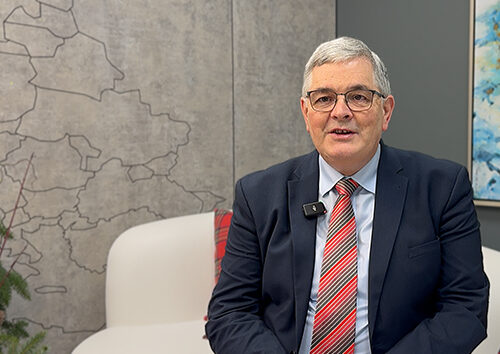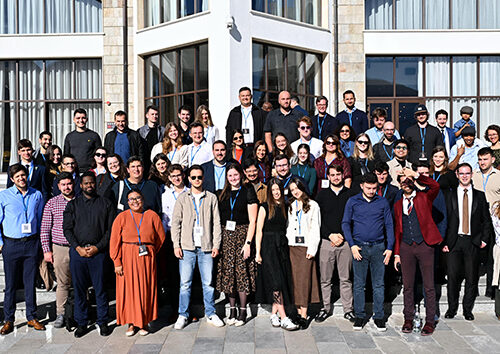20 August 2024| St Albans, UK [Adrian Peck, with tedNEWS]
Johnny turns up to your church services for the first time. Being a church community that values acceptance, you overlook the pungent mix of alcohol and cigarette odour that follows him around as if he is generating his own climate. His clothes are shabby and ill-fitting and display some disturbing stains. You are OK with this, as the local minister has drilled into the congregation that you need to accept people like this. A couple of weeks later, he falls asleep and loses control of his bladder. Subsequently, the floor is sanitised. The pew cushions are unceremoniously burnt as they are way past being rescued. But that is ok because the church welcomes the ‘least of these,’ and that includes Johnny.
In the spirit of good fellowship, there are often shared lunches where the members bring food for themselves and others. For many, this is the highlight of the month because rather than rushing off at the service’s conclusion, they get to talk, share and really get to know and support each other. Johnny’s introduction to this tradition proves eventful. He has not eaten nutritious food in such quantities in a long while, causing his stomach to violently protest at the sudden intrusion. Most of the lovingly prepared food finds its way back out into the wild, liberally coating the cubicle, cistern, toilet seat and pan that Johnny thankfully made it to before projectile vomiting. The members who are blessed with the spiritual gifts of service and helps, spring into action to clean up the facilities and Johnny – all is once again spic and span.

A few weeks later, the preacher has come to a poignant moment in their sermon. For both effect and to allow the congregation to contemplate what has been said, she pauses dramatically. Meanwhile, Johnny has had a particularly rough night. The service has acted like an anaesthetic and, combined with comfortable cushions and a warm room, sleep is irresistible for him. As the speaker looks meaningfully into the congregation’s eyes, the silence is suddenly shattered by a sonorous snore from Johnny that seems to hit the decibel level of a jet engine. The moment is lost forever. Looks of shock mingle with sniggers. But in the end, that is fine. Johnny cannot help it.
An uncomfortable presence
Fast forward several months and Johnny is still providing unwanted sound effects with devastatingly efficient timing. He has deposited the contents of his stomach at various places around the building. He continues to be accompanied by eye-wincing aromas. Plans are hatched to help Johnny out. Clothing is offered but, alas, is vigorously rebuffed. He is encouraged to enrol in Alcoholics Anonymous to help with his addictions, but after one meeting, he declares that it is not for him. Food parcels are accepted, but the suspicion is they are discarded on the journey home. Johnny is gently encouraged to sit on chairs that are more easily cleaned. During services, sentries are positioned next to him, charged with delivering judicious nudges to help keep Johnny in a conscious, non-snoring state. However, on one occasion, this measure backfires as Johnny splutters awake after one particularly firm elbow in the ribs and ejects expletives out into the atmosphere like confetti.
Reformation required
Patience starts to wear thin. Every effort to help Johnny comes to nothing. The chats with him about his behaviour begin to get pointed and firm but prove no more effective. The many measures to bring about a reformed, clean-cut Johnny end in abject failure. After months of trying, acceptance has worn thin and reached its expiry date. Finally, it is decided that Johnny should be persuaded that he would be better off elsewhere.
It turns out, that as welcoming as the congregation were at first, it is apparent their acceptance can be characterised as partial, temporary and contingent. It is partial because they do not accept Johnny for all that he is. It is temporary because of that expiry date. It is contingent because they were accepting of him on the understanding that, eventually, a non-smelling, non-vomiting, non-snoring version of Johnny would emerge.
Acceptance is not easy. It is often misconstrued as conferring approval. If I accept you, it must mean that I accept everything you do. If I accept the things you do, it follows I must approve of them. This logic means we quickly reject those whose behaviour, appearance, or any other aspect of their being we find disagreeable.

Acceptance is not the same as approval
However, acceptance is not the same as approval. Acceptance is embracing and recognising someone as they are. Despite what they do, even things with which we disagree, we still welcome them as fellow human beings, as fellow bearers of the image of God as fractured as the one seen in us, and as someone whom God loves, too.
There is an intriguing passage about acceptance that runs from Romans 14:1 to 15:7. Paul begins and ends this passage with similar instructions.
‘Accept the one whose faith is weak, without quarrelling over disputable matters.’ 14:1
‘Accept one another, then, just as Christ accepted you, to bring praise to God.’ 15:7[1]
The passage sees Paul taking his readers on a journey from accepting just the weak in 14:1 to accepting everyone in 15:7. The underlying meaning of the word in Greek translated as ‘accept’ here and ‘welcome’ elsewhere, is to ‘incorporate each other into your Christian circle with no inner reservations’ or ‘to take to oneself.’[2] In between, he outlines what such acceptance looks like in practice, where he advises:
- Don’t argue with people we think are inferior to us (14:1)
- Don’t look down on others (14:3)
- Don’t condemn others for their actions (14:3)
- Seek to understand other’s motives (14:6)
- Don’t judge, that is God’s job (14:3-4 ,10 ,13)
- Get a little perspective (14:16, 17)
- Be other-centred (14:21; 15.1)
And, in noting how the passage ends, if we want to know and experience what this looks like in practice, we just need to look to Jesus and remember the way he accepts us. Now, that is both sobering and daunting – especially when it comes to a character like Johnny.
[Featured Image: The Stanborough Press, All other images: Shutterstock]
[1] The New International Version (NIV).
[2] The word in the original Greek is ‘Προσλαμβάνω’ or ‘proslambano’. Gerhard Kittel and Gerhard Friedrich, eds., Theological Dictionary of the New Testament, trans. Geoffrey W. Bromiley (Grand Rapids, MI: Wm.B. Eerdmans Publishing Company, 1964), 15.
Excerpts from Peck’s book, Church on the Move – From Isolation to Community, recently published by Stanborough Press, feature in every regular edition of tedNEWS from January to September 2024. In doing so, we’re inviting you to become a fellow traveller with Peck. Interestingly, his book offers ‘movements’ rather than ‘chapters’ to encourage a sense of the reader ‘being in transition’. If there was a book that particularly aligns and wrestles over the meaning of the Trans-European Division’s three strategic values to Extend Love, Grow Lifelong Disciples, and Multiply Communities, it is this one.
Copies of Church on the Move are available from Life Source Christian Bookshop (the retail outlet of The Stanborough Press). The book is also available as an eBook for Kindle. [Photos: Stanborough Press (featured image)
- ‘Movement 1’, The Question of Neighbourliness first published in the January edition of tedNEWS asked the question, “Am I being a neighbour without limits, qualifications, equivocation, or hesitation?”.
- ‘Movement 2’, Bad Breath, Awkward Silences, and the Art of Being Uncomfortable invited us to dare imagine the church community as a foretaste of the Kingdom of God.
- ‘Movement 3’, When will you become like us? Or should we be asking when will you become like Jesus?
- ‘Movement 4’, Initially, they seemed to attract only left-handed people… but then some right-handed people began to turn up.
- ‘Movement 5’, Human Waste and Human Beings
- Movement 6, ‘Trading Gossip for Vulnerability’
- Movement 8: In the final, not-to-be-missed instalment, Adrian Peck examines the issue of ‘shame’. Look out for it in the September edition of tedNEWS.



